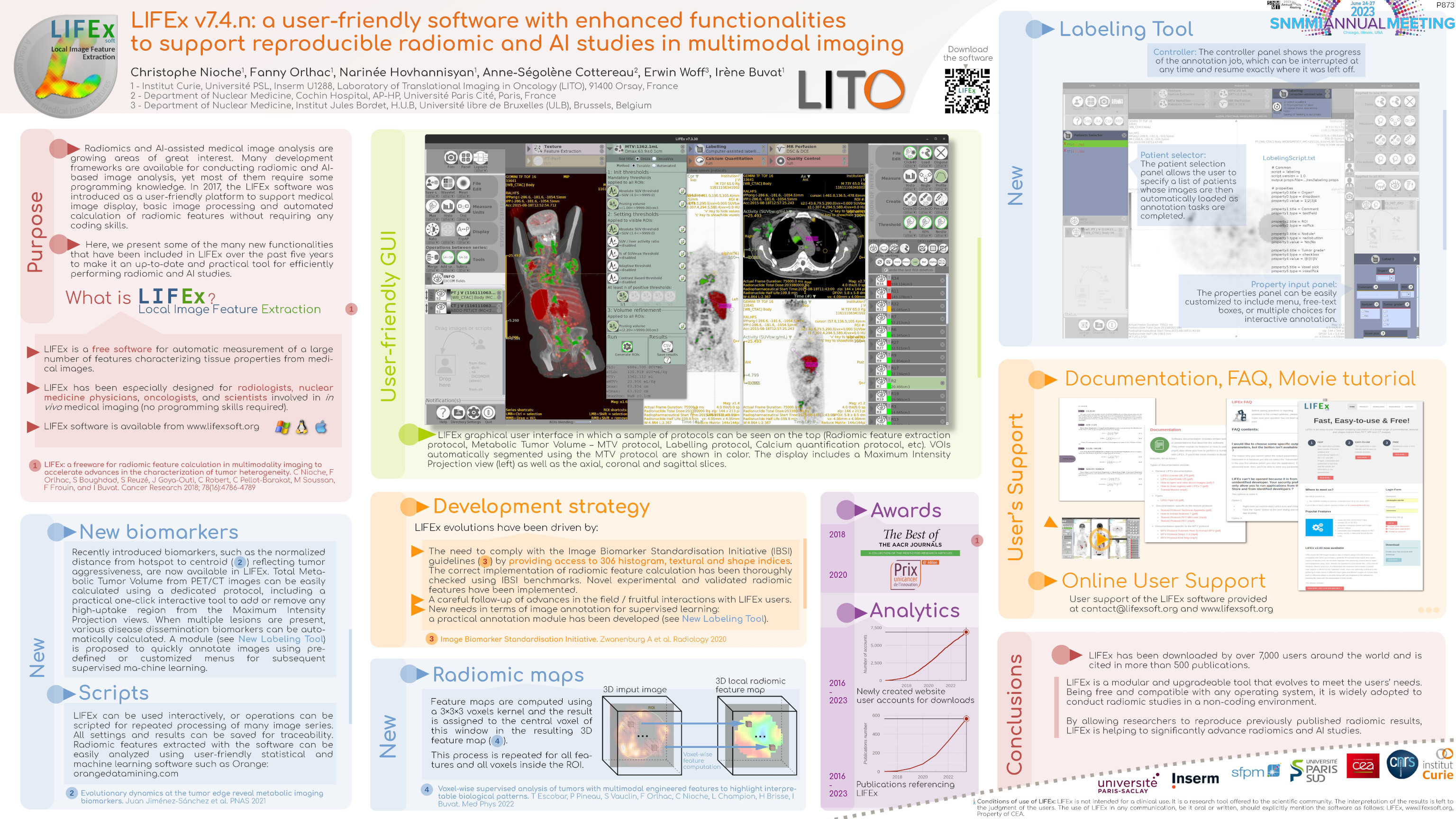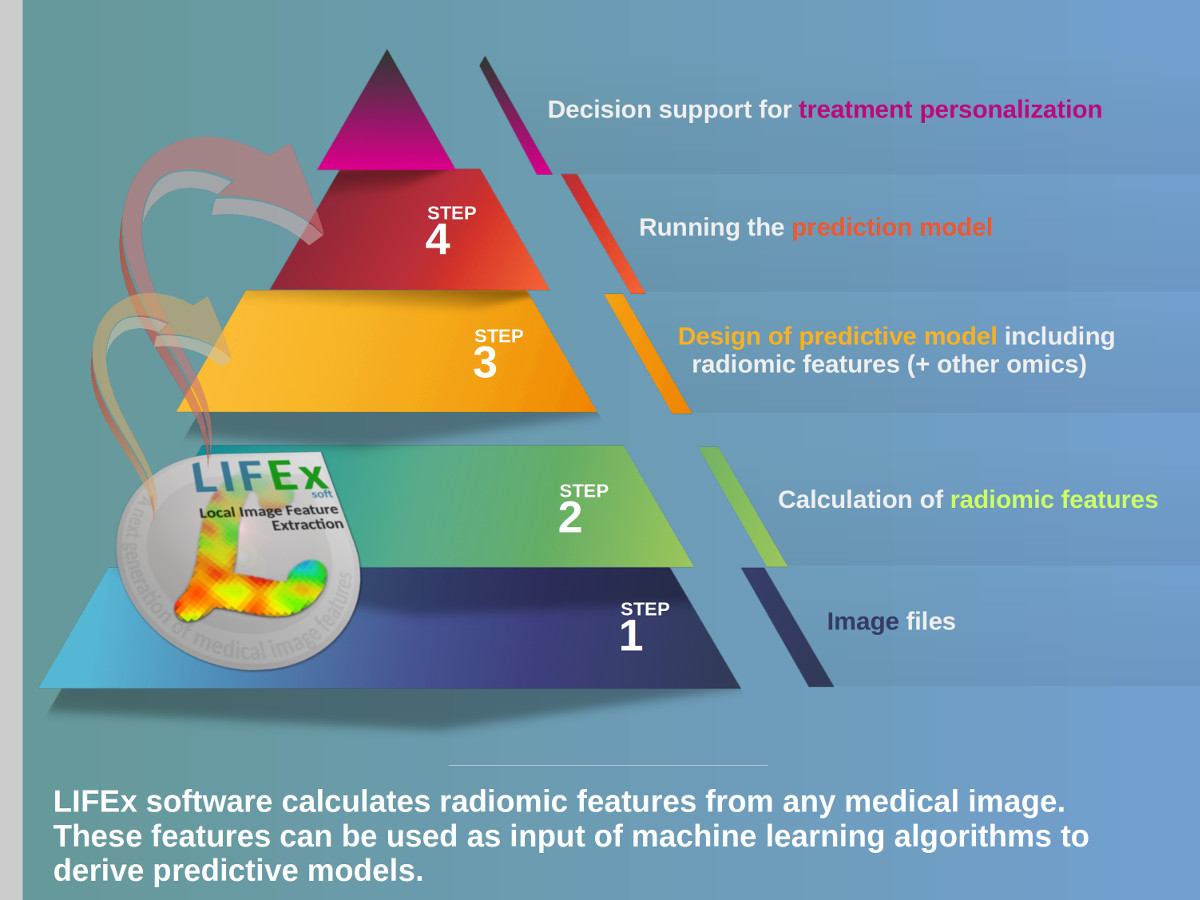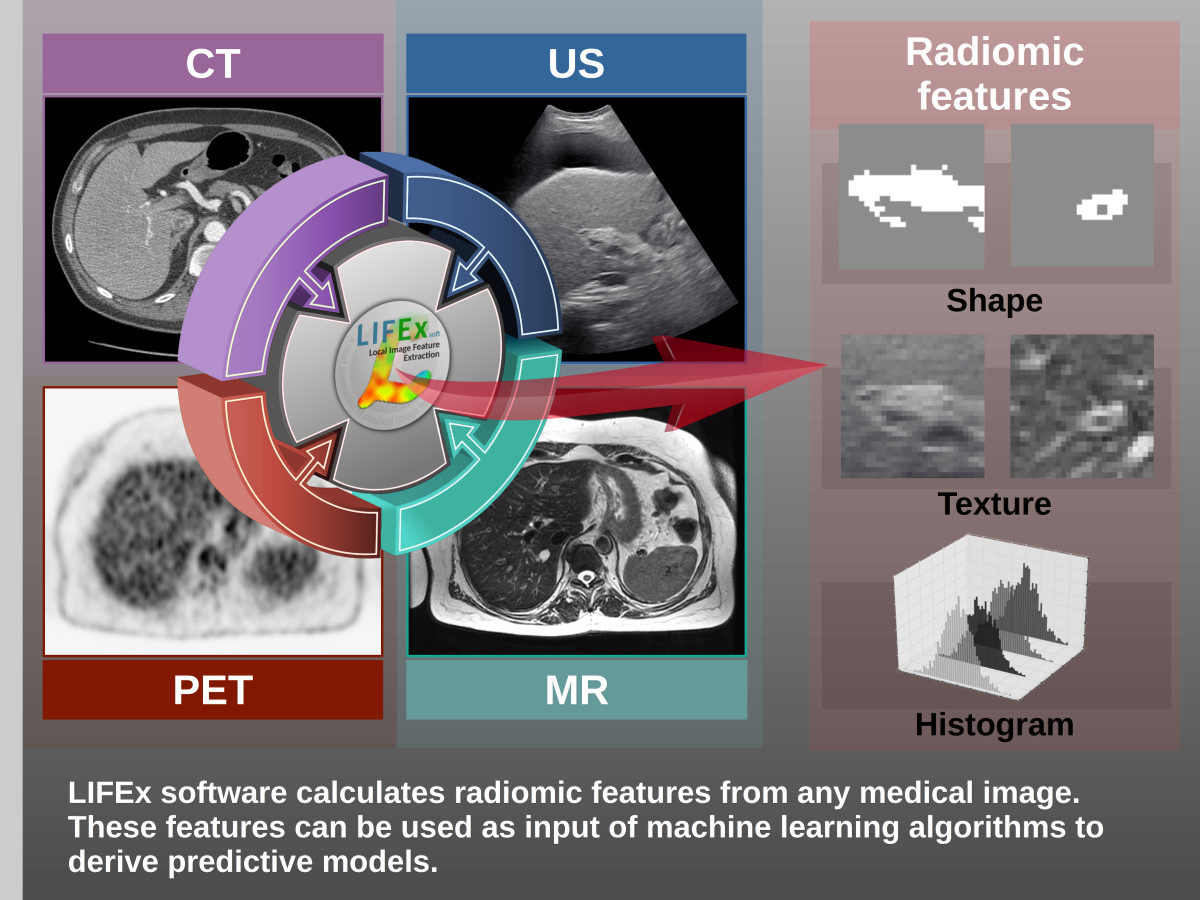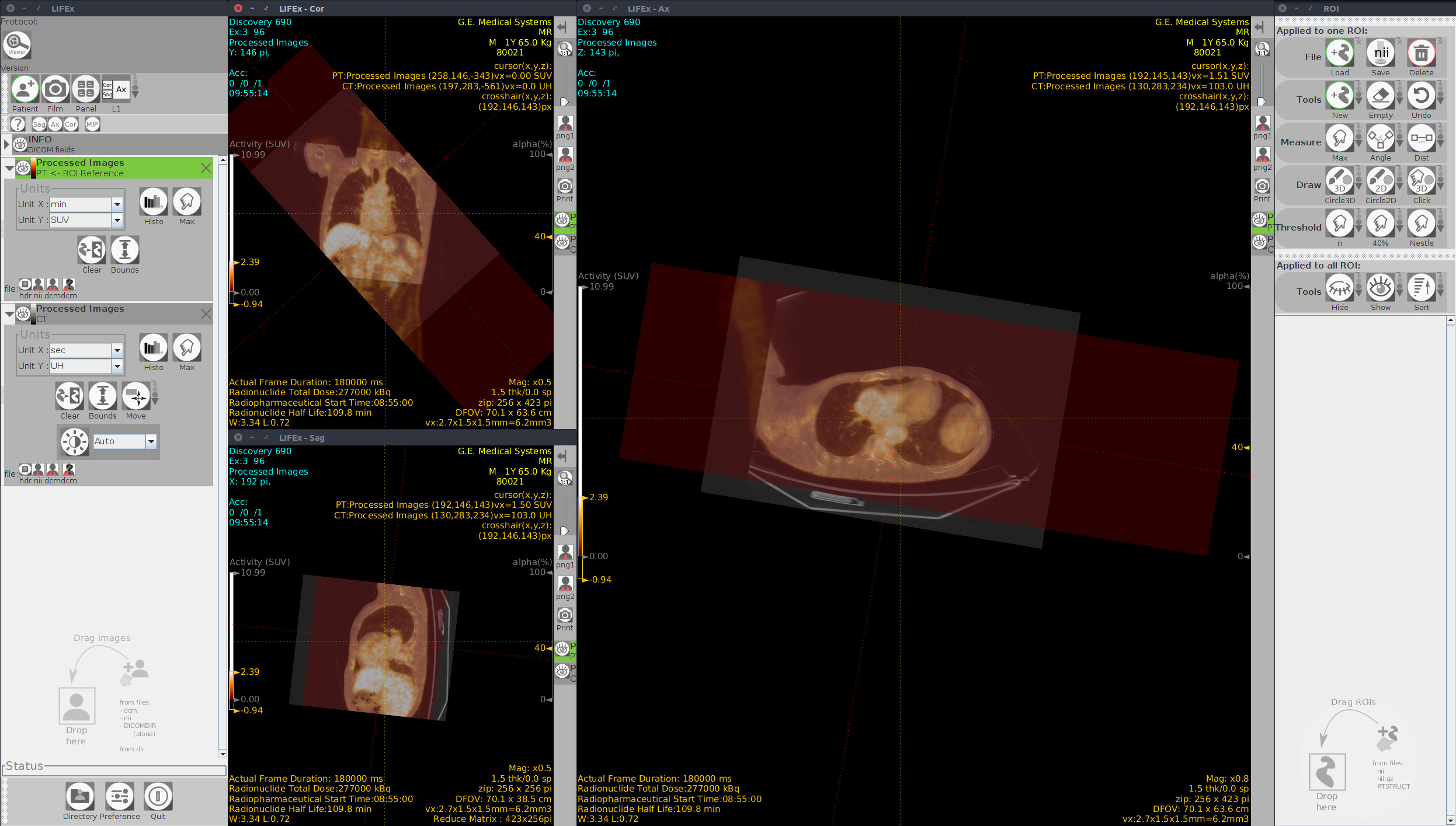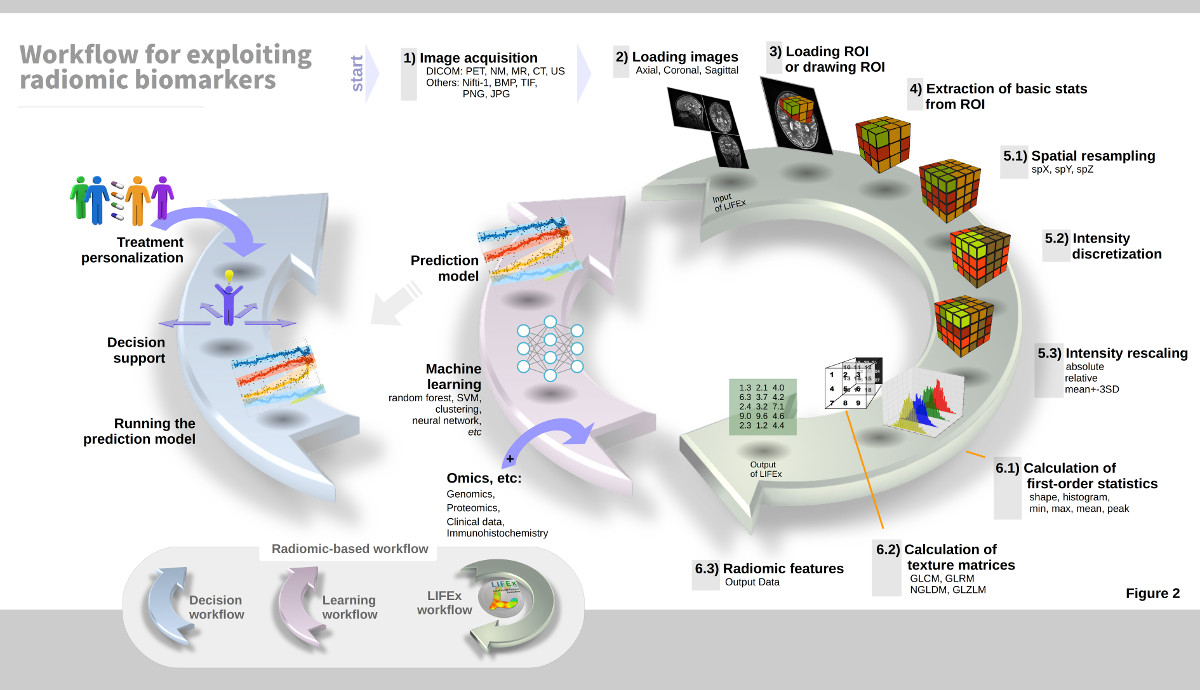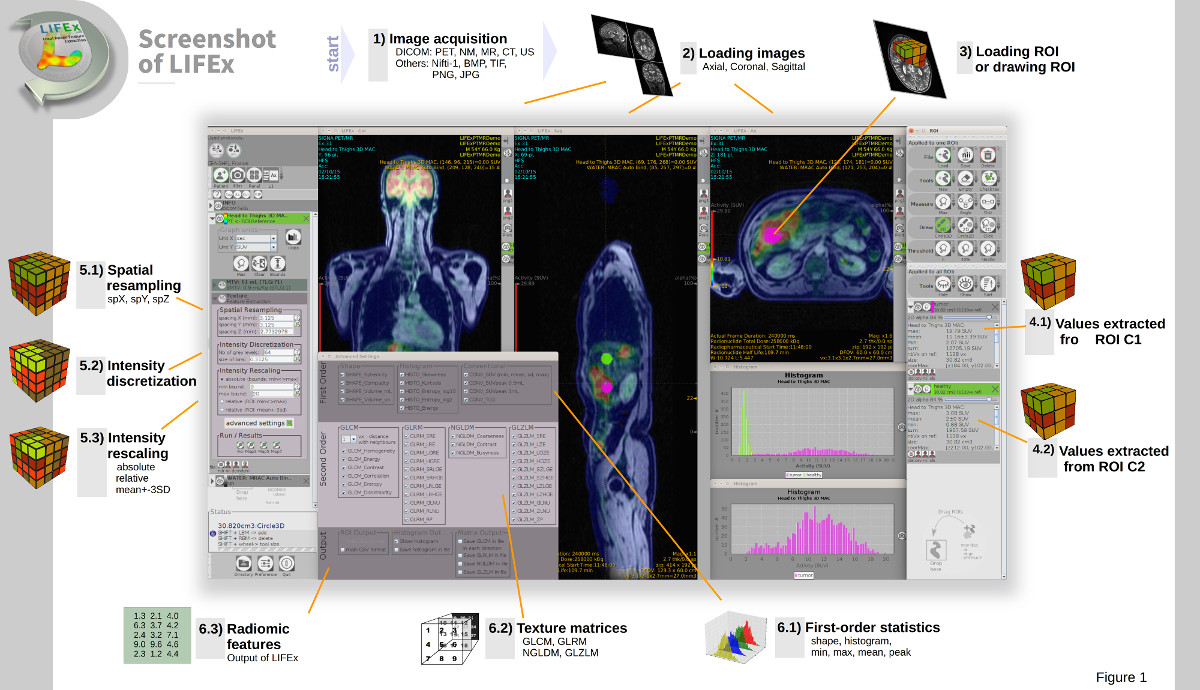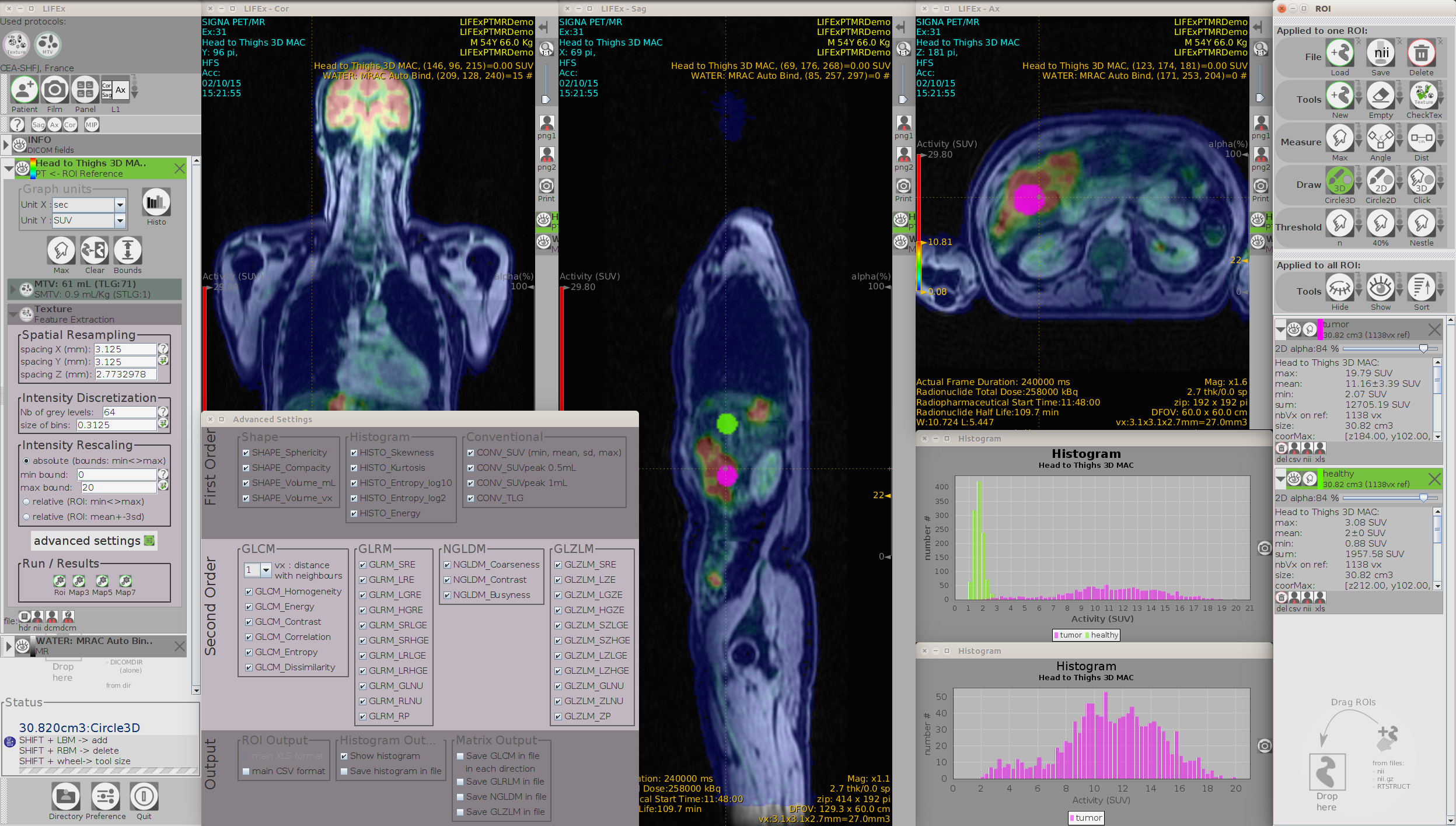Radiomics Theory And Practice, April 8-10, 2024, Paris
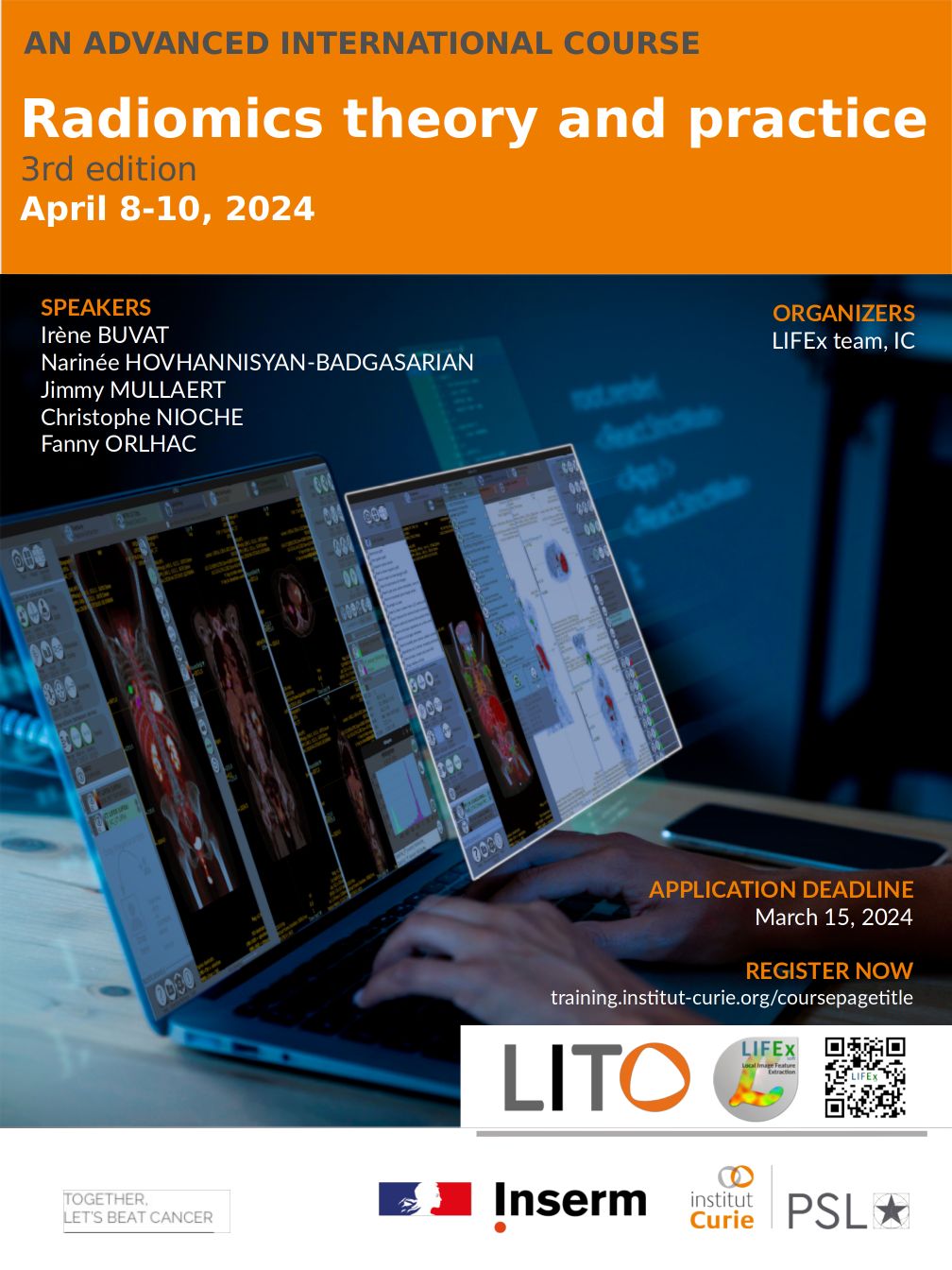
For those who are interested, we organize a 3-day radiomics and LIFEx training session early April this year in Paris, France.
Space is limited to 25 participants as we will have a lot of hand-on sessions, so if you are willing to participate, please register early.
More information on https://training.institut-
Best,
The LIFEx team
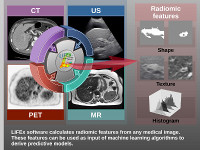
LIFEx, Cancer Research 2018
LIFEx: a freeware for radiomic feature calculation in multimodality imaging to accelerate advances in the characterization of tumor heterogeneity
C Nioche, F Orlhac, S Boughdad, S Reuzé, J Goya-Outi, C Robert, C Pellot-Barakat, M Soussan, F Frouin, and I Buvat. LIFEx: a freeware for radiomic feature calculation in multimodality imaging to accelerate advances in the characterization of tumor heterogeneity. Cancer Research 2018; 78(16):4786-4789
UsersLocationColin
LIFExWorshop2024
3.0 : Sans rayon

3.1.1 : Rayons "parallèles":
3.1 Rayons "parallèles" (aussi sur l'écran principal)

3.2 : Rayons elliptiques (aussi sur l'écran principal) :

3.2.1: Rayons "elliptiques"

LIFEx and the General Data Protection Regulation (GDPR)
Introduction
The European Union's (EU) General Data Protection Regulation (GDPR) is now in effect and LIFEx is GDPR compliant. The GDPR is the most significant piece of data protection legislation to date and impacts any organization that processes personal data in connection with goods/services offered to an EU resident, or monitors the behavior of persons within the EU. The GDPR strengthens individuals' privacy rights through tighter limits in the processing of their personal data, significantly expanding their rights over their data, and providing increased transparency into the nature, purpose, and use of it.
LIFEx's Commitment to Data Protection and GDPR Compliance
As an enthusiastic advocate of the power and customer-centricity of the engagement economy, LIFEx understands the importance of putting privacy and data protection in the hands of the data subject. As with other data protection laws, GDPR compliance requires commitment from both LIFEx and our users. LIFEx complies with the GDPR and our services include the functionality necessary for our users to comply with the GDPR's consent and accountability requirements. We have carefully examined the relevant provisions of the GDPR and we are closely tracking applicable GDPR guidance issued by regulatory authorities. These steps are helping us to develop tools for our customers relevant to GDPR-compliant use of LIFEx's services.
GDPR Overview
As a regulation instead of a directive, the GDPR is enforceable as law in all EU member states simultaneously and replaces the separate member state implementations of data protection law, streamlining compliance by providing a single set of principles to follow.
The scope of this new regulation encompasses all organizations that process the personal data of EU residents or monitor individuals' behaviors conducted within the EU, regardless of the entity's location. The terms processing and personal data are defined broadly: processing involves "any operation or set of operations which is performed on personal data" and personal data means "any information relating to an identified or identifiable natural person ('data subject')." The GDPR outlines different requirements for Controllers (entities who determine the purposes and means of the processing of personal data) and Processors (entities who process personal data as directed by a Controller).
Key GDPR Compliance Requirements
The GDPR changes the way organizations collect data, as well as how they obtain, document, and manage the legal basis for processing. Below is an overview of some of the key GDPR requirements.
|
Key Requirements |
Brief Description |
|
Data Protection by Design and Default |
Controllers and Processors must incorporate data protection into new products and services that involve processing of personal data (Design) and consider data protection issues in all decisions (Default). |
|
Lawfulness of Processing |
Processing must be based on consent, performance of a contract, legal obligation, protection of vital interests, tasks carried out in the public interest, or legitimate interest balanced against the fundamental rights of data subjects. |
|
Conditions for Consent |
Requests for consent must be freely given, specific, informed and unambiguous by a statement or by a clear affirmative action. |
|
Security of Processing |
Controllers and Processors shall implement appropriate technical and organizational measures to ensure a level of security appropriate to the risk. |
|
Data Subject Rights & Information |
Controllers shall provide the information to Data Subjects and Data Subjects may access, correct, delete, restrict processing of, and transfer their personal data, as well as object to automated decision-making based on their personal data. |
|
Data Inventory |
Controllers and Processors must create centralized repositories containing records of processing activities carried out on personal data. |
|
Data Protection Impact Assessments |
Where a type of processing is likely to result in a high risk to the rights and freedoms of natural persons, prior to processing Controllers must carry out assessments of the impact of the envisaged processing operations on the protection of personal data. |
|
Data Protection Officer |
Controllers and Processors whose core activities consist of processing operations which require regular and systematic monitoring of data subjects on a large scale or large scale processing of special categories of data must appoint a Data Protection Officer. |
|
Controller-Processor Relationships |
Controller and Processor relationships must be governed by binding contracts that set the terms of the processing to be performed and provide Controllers the right to object to Sub-Processors engaged by the Processors. |
|
Data Breach Reporting |
In the event of a breach involving personal data, the Controller shall, where feasible, notify the relevant Supervisory Authority within 72 hours after becoming aware of it and, if there is a likely high risk to the rights and freedoms of natural persons, the affected data subjects without undue delay. |
Consent Under the GDPR
Most LIFEx users' activities will merit using consent as the legal basis for processing personal data. All LIFEx users should review how they obtain, document, and maintain authorization for processing personal data.
GDPR defines consent as:
Any freely given, specific, informed and unambiguous indication of the data subject's wishes by which he or she, by a statement or by a clear affirmative action, signifies agreement to the processing of personal data relating to him or her." -Art. 4(11)
GDPR Article 7, Conditions for Consent, requires that requests for consent be clearly distinguishable from other matters using clear and plain language, that the data subject has the right to withdraw consent at any time, and that consent is not freely given if the performance of a contract (including the provisioning of a service) is conditional on consent to processing personal data not necessary for the performance of said contract. Articles 13 and 14 outline the information to be provided to data subjects at the time of data collection.
Pre-checked or implied opt-ins are insufficient and the data subject must know to what they are consenting and that they may withdraw consent at any time. To the extent LIFEx users are relying on consent as the lawful basis for processing personal data, they can and should, among other things, configure their instances to obtain affirmative consent and provide links to privacy policies or notices that communicate required information at the time of collection.
Accountability Under the GDPR
One of the most significant requirements under the GDPR is the accountability principle. Organizations must be able to demonstrate their GDPR compliance and should therefore consider what types of technical and organizational measures will allow them to meet the accountability principle.
GDPR Article 24 requires Controllers to "implement appropriate technical and organizational measures to ensure and to be able to demonstrate that processing is performed in accordance" with the GDPR.
LIFEx offers a number of features and functions that can help demonstrate your compliance with the GDPR principles, such as:
- Role Based Permissions (properties file)
- Audit Trail (log file)
- Data Management
Cookie Policy
Your Privacy
Because we respect your right to privacy, you can choose not to allow cookies. However, blocking cookies may impact your experience when visiting the site and the services we are able to offer.
Strictly Necessary Cookies
If you want to learn more about the general uses of cookies, please visit Cookiepedia - all about cookies.

